Cardioprotective
How to submit an article:
- Registered users can submit any published journal article that has a unique DOI (Digital Object Identifier) name or link to Research Hub.
- For example, you can paste the full DOI link:
https://doi.org/10.1109/5.771073or just the DOI name:10.1109/5.771073into the field above and click submit. - The person who is first to submit a valid article to Research Hub will forever be credited for it, and every article submission earns you +6 Research Points.
Related Topics
Published research studies are articles that present the findings of original research that has undergone a peer-review process and has been made publicly available in scholarly journals, books or other media.

Astragalus propinquus schischkin and Salvia miltiorrhiza bunge promote angiogenesis to treat myocardial ischemia via Ang-1/Tie-2/FAK pathway
2023 Jan 09 Frontiers in Pharmacology Zhang MX, Huang XY, Song Y, Xu WL, Li YL, Li C
Astragalus propinquus Schischkin (Huang Qi) and Salvia miltiorrhiza Bunge (Dan Shen) (AS) can treat myocardial ischemia (MI) by protecting cardiac function, attenuating cardiac pathological changes, and hindering the progression of heart failure, which is related to angiogenesis after pericyte recruitment.
Network Pharmacology Huang Qi Dan Shen Myocardial ischemia (MI)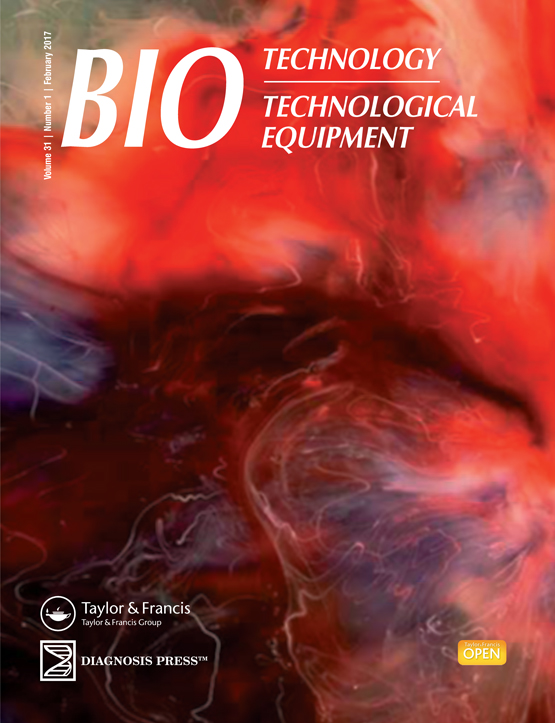
Cardio- and nephroprotective effects of fractions isolated from Lycium barbarum (goji berry) in models of cardio- and nephrotoxicity in rats
2023 Jan 09 Biotechnology & Biotechnological Equipment Hvarchanova N, Stoeva S, Radeva-Ilieva M, Zhelev I, Georgieva M, Dzhenkov D, et al.
Animal Study Nephroprotective Effects Goji Berry Cardioprotective Effects CardioprotectiveSpecific fractions of Lycium barbarum, commonly known as Goji berry, reduce heart and kidney damage caused by anthracyclines while possibly enhancing their therapeutic effects.

Cardioprotective Potential of Berries of Schisandra chinensis Turcz. (Baill.), Their Components and Food Products
2023 Jan 23 Nutrients Olas B
Various studies indicate that both S. chinensis berry preparations and their bioactive individual compounds, especially lignans and polysaccharides, appear to have cardioprotective potential; however, many of these works are limited to in vitro models.
Network Pharmacology
The clinical impact of an extra virgin olive oil enriched mediterranean diet on metabolic syndrome: Lights and shadows of a nutraceutical approach
2022 Aug 04 Frontiers in Nutrition Seidita A, Soresi M, Giannitrapani L, Di Stefano V, Citarrella R, Mirarchi L, et al.
The study concludes that the Mediterranean diet (MD) enriched with extra virgin olive oil (EVOO) offers potential health benefits, including antioxidant, anti-inflammatory, insulin-sensitizing, cardioprotective, antiatherogenic, neuroprotective, immunomodulatory, and anticancer activities. However, the authors emphasize the need for further research to fully understand the clinical efficacy and the underlying biochemical and molecular mechanisms of EVOO in treating metabolic syndrome and its associated complications.
Review Article Metabolic Syndrome Extra Virgin Olive Oil
Effects of crocin supplementation on inflammatory markers, lipid profiles, insulin and cardioprotective indices in women with PCOS: A randomized, double‐blind, placebo‐controlled trial
2022 Apr 26 Phytotherapy Research Rahimi G, Shams S, Aslani MR
Crocin intervention (15 mg, twice daily) significantly increased high-density lipoprotein cholesterol, suppressed the increase in low-density lipoprotein cholesterol, triglycerides, and total cholesterol levels, and improved insulin and cardioprotective indices in women with PCOS. Additionally, crocin demonstrated protective effects against the increase in inflammatory markers (IL-6 and TNF-α) observed in the placebo group. The findings suggest that crocin supplementation may be beneficial in the therapeutic management of PCOS.
Clinical Study Randomised Controlled Trial PCOS CrocinResearch insights are moderated by the Research Hub team and offer an at-a-glance overview of interesting research findings.

2023 Biotechnology & Biotechnological Equipment
Specific fractions of Lycium barbarum, commonly known as Goji berry, reduce heart and kidney damage caused by anthracyclines while possibly enhancing their therapeutic effects.
Animal Study Cardioprotective Effects Goji Berry Nephroprotective Effects
Cardio- and nephroprotective effects of fractions isolated from Lycium barbarum (goji berry) in models of cardio- and nephrotoxicity in rats
Hvarchanova N, Stoeva S, Radeva-Ilieva M, Zhelev I, Georgieva M, Dzhenkov D, et al.
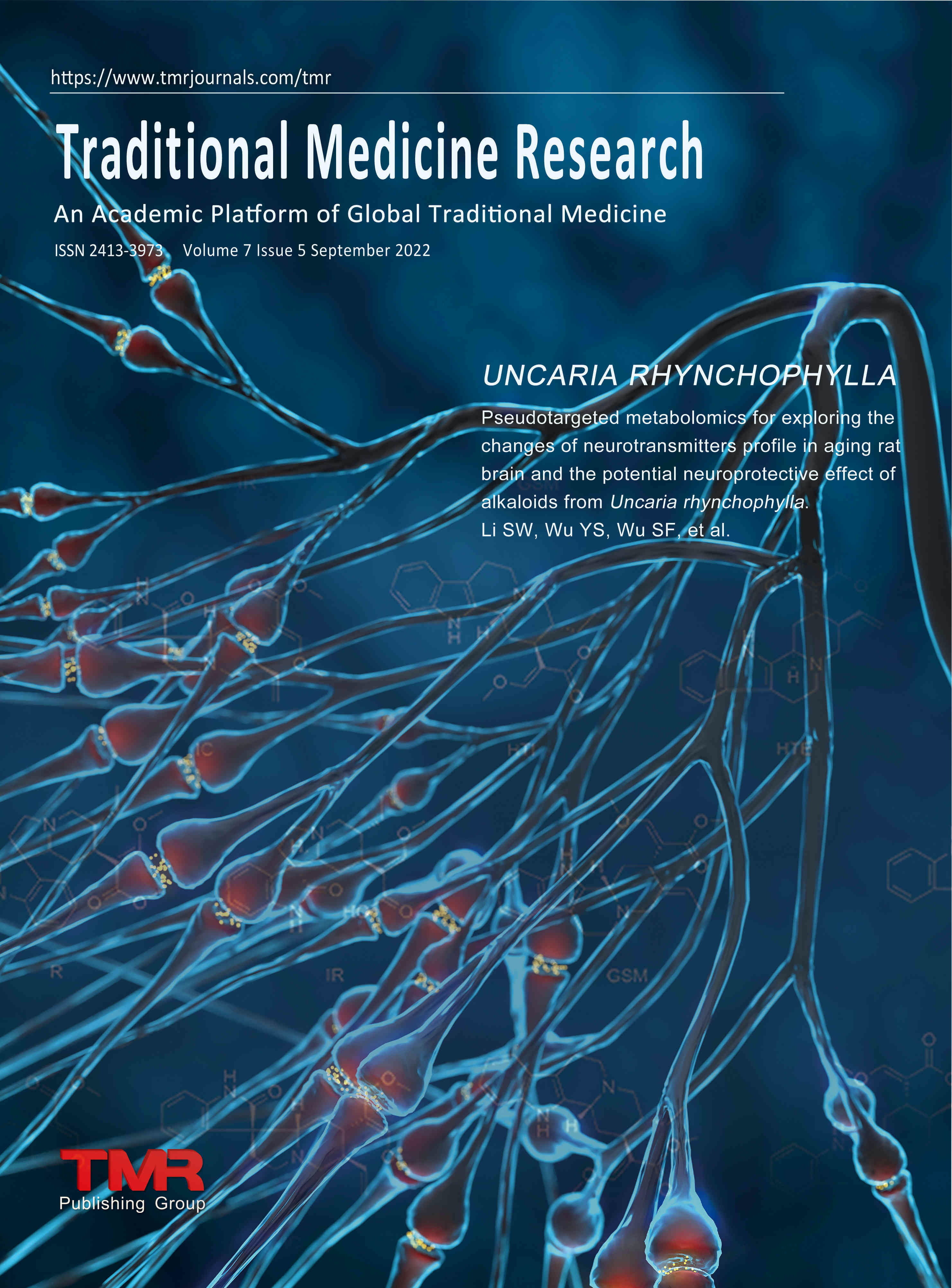
2022 Traditional Medicine Research
The jujube tree bears fruit endowed with substantial nutritional value and contains numerous phytochemical components with reported antioxidant, anti-cancer and neuroprotective properties.
Theoretical Article Anticancer Antioxidant Jujube Neuroprotective
Jujube (Ziziphus jujuba Mill. (Rhamnaceae)): a review on its pharmacological properties and phytochemistry
Aafi E, Reza M, Mirabzadeh M
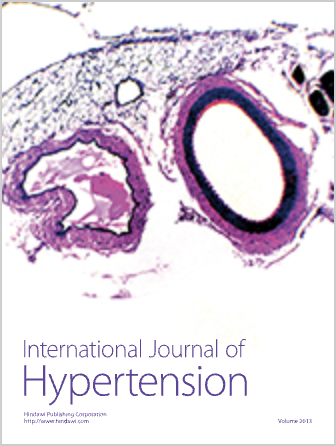
2019 International Journal of Hypertension
Acupuncture as an adjunctive therapy has antihypertensive effect.
Systematic Review High Blood Pressure
The Mechanism of Acupuncture in Treating Essential Hypertension: A Narrative Review
Juan Li , 1 Mingsheng Sun , 2 Jing Ye, 2 Yuxi Li , 2 Rongjiang Jin , 1 Hui Zheng , et al.

2017 Phytotherapy Research
Avocado, with its lipid-lowering, antihypertensive, antidiabetic, anti-obesity, and cardioprotective effects, can potentially manage metabolic syndrome more efficaciously than synthetic treatment options.
Systematic Review Avocado Cardiovascular Disease High Blood Pressure Metabolic Syndrome Obesity
Effects of Avocado (Persea americana)on Metabolic Syndrome: A Comprehensive Systematic Review
Tabeshpour J, Razavi BM, Hosseinzadeh H
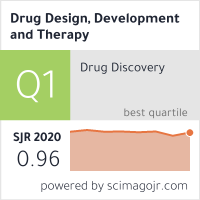
2014 Drug Design, Development and Therapy
A mixture of active polysaccharides from Goji berries have shown multiple pharmacological activities, including anti-aging, antioxidative, anti-fatigue, anticancer, anti-diabetic, anti-viral, hepatoprotective, cardioprotective, neuroprotective, hypolipidemic, radioprotective, anti-osteoporosis, anti-inflammatory, and immunomodulating effects.
Review Article
An evidence-based update on the pharmacological activities and possible molecular targets of Lycium barbarum polysaccharides
Cheng J, Zhou Z, Sheng H, He L, Fan X, He Z, et al.
Review Articles
Review articles summarise and critically evaluate the current state of research on a specific topic or field by synthesising multiple primary research studies.

The clinical impact of an extra virgin olive oil enriched mediterranean diet on metabolic syndrome: Lights and shadows of a nutraceutical approach
2022 Aug 04 Frontiers in Nutrition Seidita A, Soresi M, Giannitrapani L, Di Stefano V, Citarrella R, Mirarchi L, et al.
The study concludes that the Mediterranean diet (MD) enriched with extra virgin olive oil (EVOO) offers potential health benefits, including antioxidant, anti-inflammatory, insulin-sensitizing, cardioprotective, antiatherogenic, neuroprotective, immunomodulatory, and anticancer activities. However, the authors emphasize the need for further research to fully understand the clinical efficacy and the underlying biochemical and molecular mechanisms of EVOO in treating metabolic syndrome and its associated complications.
Review Article Metabolic Syndrome Extra Virgin Olive Oil
Jujube (Ziziphus jujuba Mill. (Rhamnaceae)): a review on its pharmacological properties and phytochemistry
2022 Jan Traditional Medicine Research Aafi E, Reza M, Mirabzadeh M
Theoretical Article Review Article Anticancer Jujube Antioxidant NeuroprotectiveThe jujube tree bears fruit endowed with substantial nutritional value and contains numerous phytochemical components with reported antioxidant, anti-cancer and neuroprotective properties.
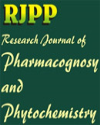
Mentha arvensis (Pudina): A Review Based upon its Medicinal Properties
2021 Aug 20 Research Journal of Pharmacognosy and Phytochemistry Thakur S, Walia B, Chaudhary G
Various bioactive compounds isolated from this plant are terpenoids, alcohols, rosmarinic acids and phenolics. These bioactive compounds have many pharmacological properties such as antimicrobial, hepatoprotective, cardioprotective, antioxidant, antiulcer, immunomodulatory, antifertility and anti-tumor. These pharmacological activities of the Menthaarvensis plant are also mentioned in the literature of ayurveda, unani and other traditional system of medicine.
Review Article
Health Effects of Phenolic Compounds Found in Extra-Virgin Olive Oil, By-Products, and Leaf of Olea europaea L.
2019 Aug 01 Nutrients Romani A, Ieri F, Urciuoli S, Noce A, Marrone G, Nediani C, et al.
The review focuses on the cardioprotective properties of the Mediterranean diet (MD) related to olive oil consumption, highlighting the biological activities of polyphenols recovered from olive oil by-products and leaves. Recent European projects, such as EPIC and EPICOR, are discussed, demonstrating the functional and preventive activities of EVOO in relation to cancer, nutrition, and the incidence of coronary heart disease. The study emphasizes the potential of EVOO and its by-products for various applications, aligning with the circular economy strategy.
Experimental Study Review Article
The Mechanism of Acupuncture in Treating Essential Hypertension: A Narrative Review
2019 Mar 7 International Journal of Hypertension Juan Li , 1 Mingsheng Sun , 2 Jing Ye, 2 Yuxi Li , 2 Rongjiang Jin , 1 Hui Zheng , et al.
Systematic Review Randomised Controlled Trial High Blood PressureAcupuncture as an adjunctive therapy has antihypertensive effect.
Clinical Trials
Clinical trials are research studies that involve people and are conducted to evaluate the safety and efficacy of new treatments or interventions, such as drugs, medical devices, or behavioural therapies.

Effects of crocin supplementation on inflammatory markers, lipid profiles, insulin and cardioprotective indices in women with PCOS: A randomized, double‐blind, placebo‐controlled trial
2022 Apr 26 Phytotherapy Research Rahimi G, Shams S, Aslani MR
Crocin intervention (15 mg, twice daily) significantly increased high-density lipoprotein cholesterol, suppressed the increase in low-density lipoprotein cholesterol, triglycerides, and total cholesterol levels, and improved insulin and cardioprotective indices in women with PCOS. Additionally, crocin demonstrated protective effects against the increase in inflammatory markers (IL-6 and TNF-α) observed in the placebo group. The findings suggest that crocin supplementation may be beneficial in the therapeutic management of PCOS.
Clinical Study Randomised Controlled Trial PCOS Crocin
The Mechanism of Acupuncture in Treating Essential Hypertension: A Narrative Review
2019 Mar 7 International Journal of Hypertension Juan Li , 1 Mingsheng Sun , 2 Jing Ye, 2 Yuxi Li , 2 Rongjiang Jin , 1 Hui Zheng , et al.
Systematic Review Randomised Controlled Trial High Blood PressureAcupuncture as an adjunctive therapy has antihypertensive effect.
Study Protocols
Published study protocols are detailed plans that outline the objectives, methodology, statistical analyses, and organisation of a research study that have been made publicly available for others to review and use as a reference.
Presentation Slides

Animal Study
Specific fractions of Lycium barbarum, commonly known as Goji berry, reduce heart and kidney damage caused by anthracyclines while possibly enhancing their therapeutic effects.
Hvarchanova N, Stoeva S, Radeva-Ilieva M, Zhelev I, Georgieva M, Dzhenkov D, Georgiev KD

Theoretical Article
The jujube tree bears fruit endowed with substantial nutritional value and contains numerous phytochemical components with reported antioxidant, anti-cancer and neuroprotective properties.
Aafi E, Reza M, Mirabzadeh M

Systematic Review
Acupuncture as an adjunctive therapy has antihypertensive effect.
Juan Li ,1 Mingsheng Sun ,2 Jing Ye,2 Yuxi Li ,2 Rongjiang Jin ,1 Hui Zheng ,2 and Fanrong Liang 2

Systematic Review
Avocado, with its lipid-lowering, antihypertensive, antidiabetic, anti-obesity, and cardioprotective effects, can potentially manage metabolic syndrome more efficaciously than synthetic treatment options.
Tabeshpour J, Razavi BM, Hosseinzadeh H

Review Article
A mixture of active polysaccharides from Goji berries have shown multiple pharmacological activities, including anti-aging, antioxidative, anti-fatigue, anticancer, anti-diabetic, anti-viral, hepatoprotective, cardioprotective, neuroprotective, hypolipidemic, radioprotective, anti-osteoporosis, anti-inflammatory, and immunomodulating effects.
Cheng J, Zhou Z, Sheng H, He L, Fan X, He Z, Sun T, Zhang X, Zhao RJ, Gu L, Cao C, Zhou S
Executive Summary
Write an executive summary in the form of a blog article on the topic of "Research into Chinese medicine treatment for Cardioprotective" summarising the research below and using language that can be easily understood by patients and avoiding medical jargon using a professional and caring tone of voice.
Write an executive summary in the form of a blog article on the topic of "Researched Chinese medicine treatments for Cardioprotective" summarising the research below in an objective and easy to understand way, and using language that can be easily understood by patients. Group the article into Chinese medicine treatments first, followed by nutrition and other treatments. Avoid using medical jargon and use a professional and caring tone of voice.
Write me a concise but easy to understand executive summary on the topic of "Chinese medicine treatments for Cardioprotective" based on the following research that I will give you. Your summary should be 2 paragraphs long in Australian English spelling and include references to the studies.
A Animal Study published in 2023 in the journal Biotechnology & Biotechnological Equipment found that Specific fractions of Lycium barbarum, commonly known as Goji berry, reduce heart and kidney damage caused by anthracyclines while possibly enhancing their therapeutic effects. The study investigated the effects of three different fractions of Goji berries (pectin-free, polysaccharides, and a mix of the two) on rat models suffering from doxorubicin-induced damage to the heart and kidneys. The fractions were orally administered at a dose of 2mg/kg while doxorubicin was applied at a total dose of 20mg/kg. Several biomarkers were used to assess heart damage (such as creatine kinase, aspartate aminotransferase, lactate dehydrogenase) and kidney damage (creatinine, blood urea nitrogen, uric acid), along with potassium serum levels. Additionally, a histological analysis of the hearts and kidneys was conducted. In terms of results, rats treated solely with doxorubicin exhibited a significant increase in all toxicity biomarkers. However, in all groups that also received any of the plant fractions, there was substantial reduction in markers indicating heart and kidney tissue damage. Notably, the pectin-free and combined fractions presented the most substantial decreases in toxicity indicators. These findings were further corroborated by the histological analysis.
A Theoretical Article published in 2022 in the journal Traditional Medicine Research found that The jujube tree bears fruit endowed with substantial nutritional value and contains numerous phytochemical components with reported antioxidant, anti-cancer and neuroprotective properties. The research implemented an analysis of the jujube tree, its fruit, and its long history of usage in traditional medicine, focusing primarily on its use in traditional Persian and Chinese medicines. The varied geographical distribution of the tree was studied, especially its presence in tropical and subtropical regions across Europe and Asia. Researchers took into account the tree’s resilience to soil salinity and alkalinity as part of its general characteristics. The core of the study involved an in-depth investigation into the nutritional composition and pharmacological properties of the jujube fruit. The fruit's contents were categorized into proteins, minerals, vitamins, organic acids, and carbohydrates. Furthermore, a range of phytochemical components such as polyphenols, flavonoids, terpenoids, anthocyanins, alkaloids, and carotenoids were identified. Research noted both the fruit's nutraceutical and cosmeceutical potential. It also explored the medicinal properties of all elements of the plant, not just the fruit. The physiological impacts of the jujube were also evaluated across various medical contexts, seeking to understand its impact on different organs and tissues, as well as its influence on various health conditions and concerns. Culminating in the identification of antioxidant, anti-cancer, antimicrobial, neuroprotective, cardioprotective, hepatoprotective properties. Noteworthy, are also its health-promoting effects, with strong references to anti-aging properties.
A Systematic Review published in 2019 in the journal International Journal of Hypertension found that Acupuncture as an adjunctive therapy has antihypertensive effect. The mechanism of acupuncture for hypertension is related to RAAS, vascular endothelium, oxidative stress, the neuroendocrine system, and other factors; also, there is cross-talk between multiple systems and multiple targets. In addition, the functional images, genes, metabolism, etc. change with antihypertensive effect. Acupuncture can protect target organs in addition to reducing BP. Overall, based on the mechanism research acupuncture may be an effective intervention for management of hypertension.
A Systematic Review published in 2017 in the journal Phytotherapy Research found that Avocado, with its lipid-lowering, antihypertensive, antidiabetic, anti-obesity, and cardioprotective effects, can potentially manage metabolic syndrome more efficaciously than synthetic treatment options. The methodology used in this research involved a systematic review of several studies investigating the pharmacological effects of avocado on different components of metabolic syndrome. This included studies on the lipid-lowering, antihypertensive, antidiabetic, anti-obesity, antithrombotic, antiatherosclerotic, and cardioprotective effects of avocado. Further, the review also encompassed researches based on the effects of avocado's various parts like the flesh, seed, peel, and leaves in metabolic syndrome. Upon evaluation of collected studies, the researchers found that the avocado, a rich source of carotenoids, minerals, phenolics, vitamins, and fatty acids, demonstrates strong potential in managing metabolic syndrome. Its antidiabetic, antihypertensive, anti-obesity, lipid-lowering, and cardioprotective properties specifically align with the key risk factors of metabolic disease, including high blood sugar, dyslipidemia, hypertension, and obesity. These qualities suggest that avocado might present a more efficient and less adverse alternative to synthetic treatments.
A Review Article published in 2014 in the journal Drug Design, Development and Therapy found that A mixture of active polysaccharides from Goji berries have shown multiple pharmacological activities, including anti-aging, antioxidative, anti-fatigue, anticancer, anti-diabetic, anti-viral, hepatoprotective, cardioprotective, neuroprotective, hypolipidemic, radioprotective, anti-osteoporosis, anti-inflammatory, and immunomodulating effects. The mechanisms for these beneficial effects are multifaceted, involving a number of signaling molecules and pathways. A better understanding of how LBPs act on these signaling pathways and molecules can improve our knowledge on glycobiology. Further studies using systems pharmacology approaches such as proteomic and metabolomic analysis are needed to uncover the molecular target networks of LBPs. Despite the importance of Goji in the traditional Chinese medicine and increased popularity in Western countries, clinical safety data on LBPs are sparse. A safe and optimal use of herbal medicines like LBPs requires a full understanding of their pharmacokinetics, side effects, and mechanisms of action. The dose–response and dose–toxicity relationships of LBPs should be established in animal and human studies. It is essential to develop new formulations to ensure the maximum efficacy and effectiveness and minimum side effects of LBP-related health products.
Moderation Tools
Topic
Sign In
Users not signed in are limited to viewing the 5 most recent items of content.